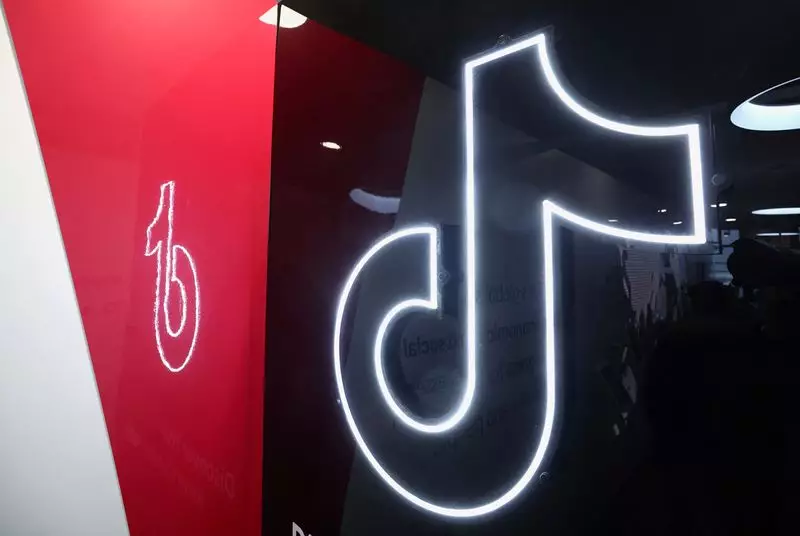In a rapidly evolving digital landscape, few events capture public attention like the saga surrounding TikTok, the popular short-video app. The recent executive order signed by President Donald Trump, which seeks to delay a potential ban or divestiture of TikTok in the U.S., illustrates the complexities of national security, international relations, and corporate interests that converge around this platform. The implications of this decision extend far beyond the confines of TikTok itself, reflecting broader tensions between the U.S. and China, and raising questions about the intersection of government, technology, and consumer rights.
On January 19, TikTok users in the U.S. faced uncertainties as the app appeared to be on the brink of removal, following the enactment of legislation that mandated its sale due to national security concerns. The public outcry from its extensive user base, approximately 170 million Americans, prompted a swift response. In a move poised to secure the app’s future, Trump proposed a 75-day extension of the enforcement deadline, hinting at the possibility of the U.S. government obtaining a substantial stake in TikTok. The notion of a government holding equity in a private company is unprecedented in American history, stirring a mix of skepticism and intrigue.
Trump’s directive also coincided with the onset of his presidency, setting the stage for potential negotiations with TikTok’s parent company, ByteDance. “The U.S. government should be a half owner,” he asserted, highlighting the administration’s growing willingness to delve into private enterprise affairs if it serves perceived national interests.
The legal basis for Trump’s executive order is fraught with ambiguity. Key aspects of the existing law demanding divestiture were passed with significant bipartisan support and signed into effect by President Joe Biden. The procedural integrity of the law raises critical questions about Trump’s authority for extension without clear, binding agreements in place from ByteDance. U.S. Representative Frank Pallone voiced concerns over the perceived circumvention of legislation that has been upheld by the Supreme Court, casting doubts on both the legality and the ethics of the move.
As TikTok remains operational for existing users but unavailable for new downloads in major app stores, the gray area of this legal framework leaves both users and stakeholders in a precarious position. The interplay of these legal and political dimensions creates an environment of anxiety, where millions of consumers are left dangling, unsure of the future.
TikTok’s narrative cannot be divorced from the broader geopolitical context of U.S.-China relations. Tensions remain high between the two nations, with trade wars and accusations of espionage casting long shadows over negotiations. Trump’s remarks about potential tariffs on China underscore the contentious nature of the ongoing dialogue. While he hints at a cooperative arrangement that could see the U.S. taking substantial ownership, such claims must be scrutinized against the backdrop of strained bilateral relations.
Interestingly, China’s recent indication of openness to a deal that would allow TikTok to continue its operations in the U.S. suggests that both nations might find common ground in navigating corporate exits and acquisitions. This evolving dynamic stresses the importance of recognizing that technology companies are often caught in crossfire, as their operations link back to wider national interest debates.
The ramifications of Trump’s executive order extend well beyond TikTok itself. Users of social media have a vested interest in how their data is treated, and the potential for governmental intervention in ownership stirs apprehensions regarding privacy and the manipulation of digital platforms. The administration’s attempt to craft a deal highlights a broader trend in which governments intervene in tech to address security concerns, which could set precedent for future digital commerce regulation.
Moreover, the notion of U.S. ownership over a major social media platform raises questions about censorship and content moderation strategies, with the government potentially influencing how TikTok operates. Such developments could lead to a reconfiguration of the broader social media landscape and the democratic principles that underpin free speech online.
The future of TikTok hangs in the balance of legal, political, and international factors. As the situation continues to unfold, stakeholders must closely monitor developments to gauge the impact on the app’s viability, user experience, and broader market implications. Both consumer users and tech companies could face a dramatically altered landscape that challenges the very fabric of digital engagement. The unfolding events surrounding TikTok reiterate the importance of adaptability and vigilance in the rapidly evolving nexus of technology, politics, and consumer rights.

